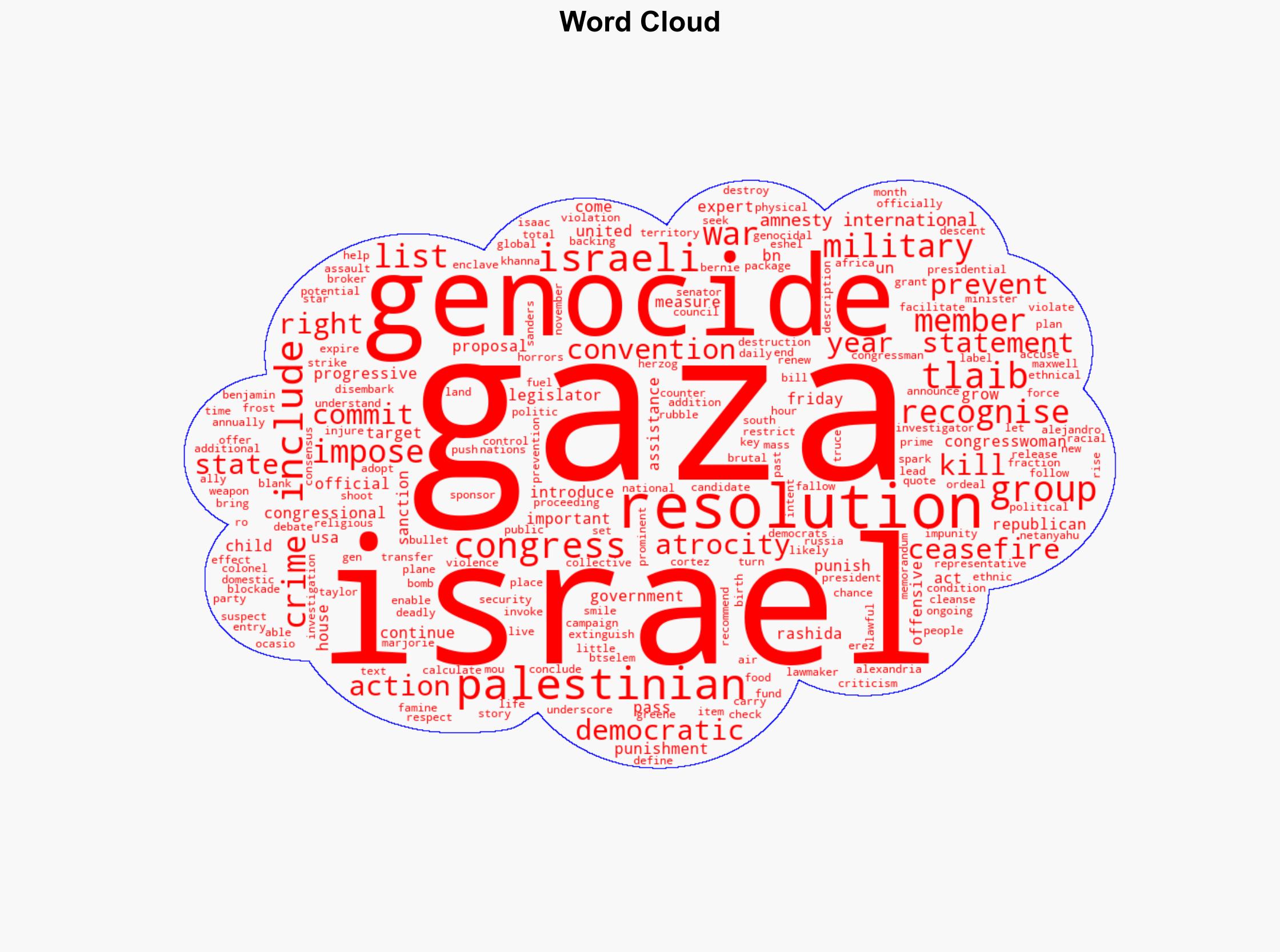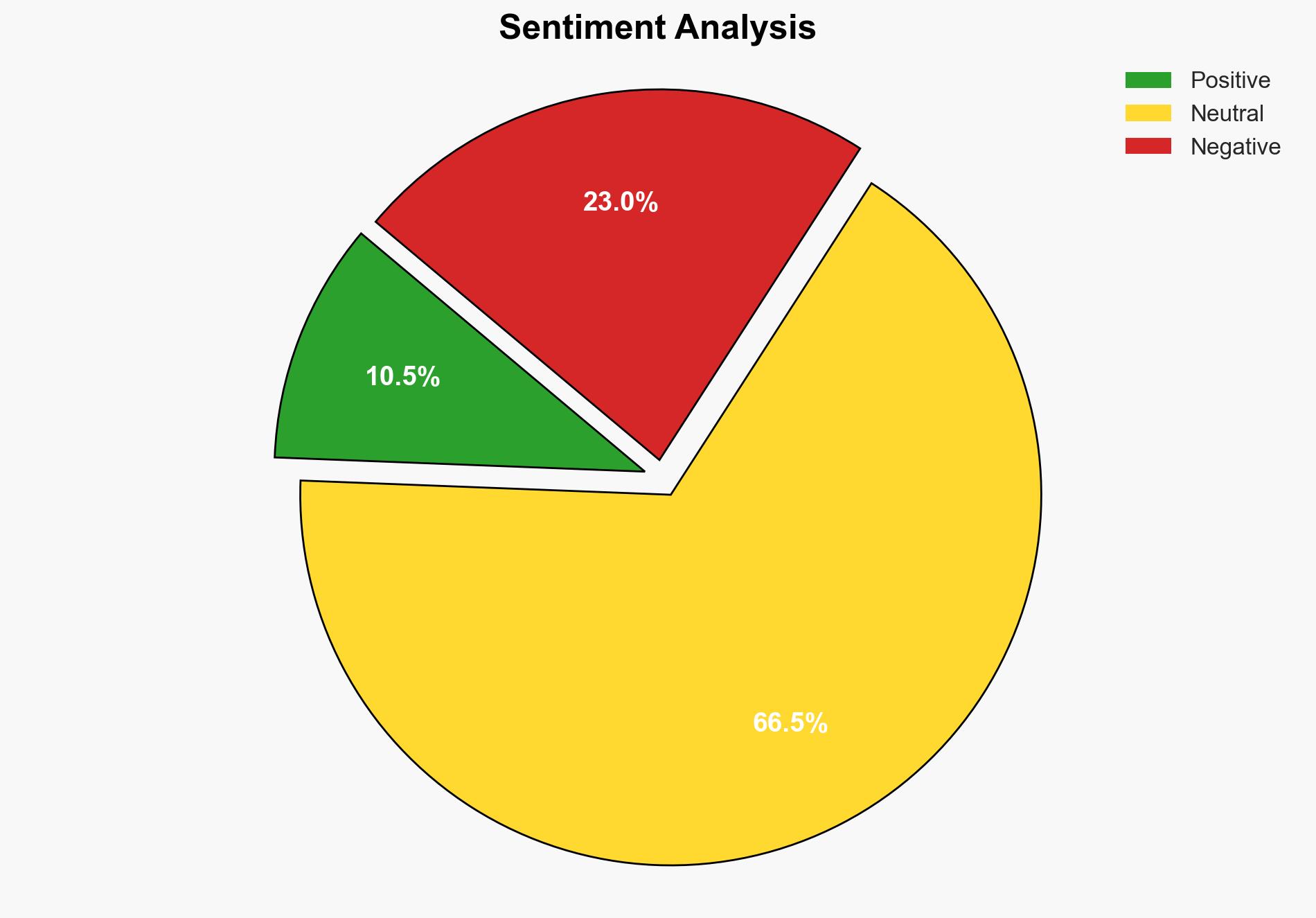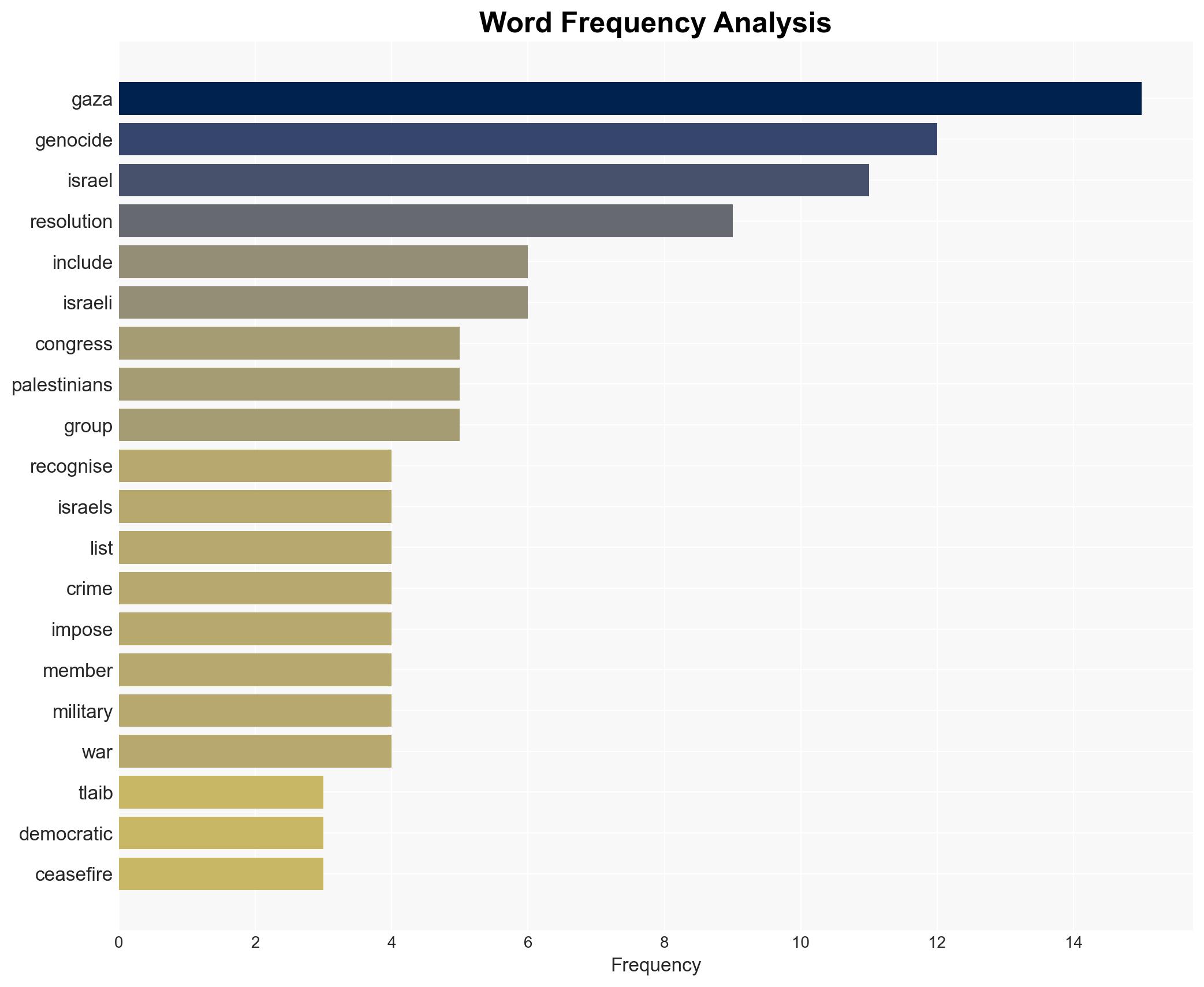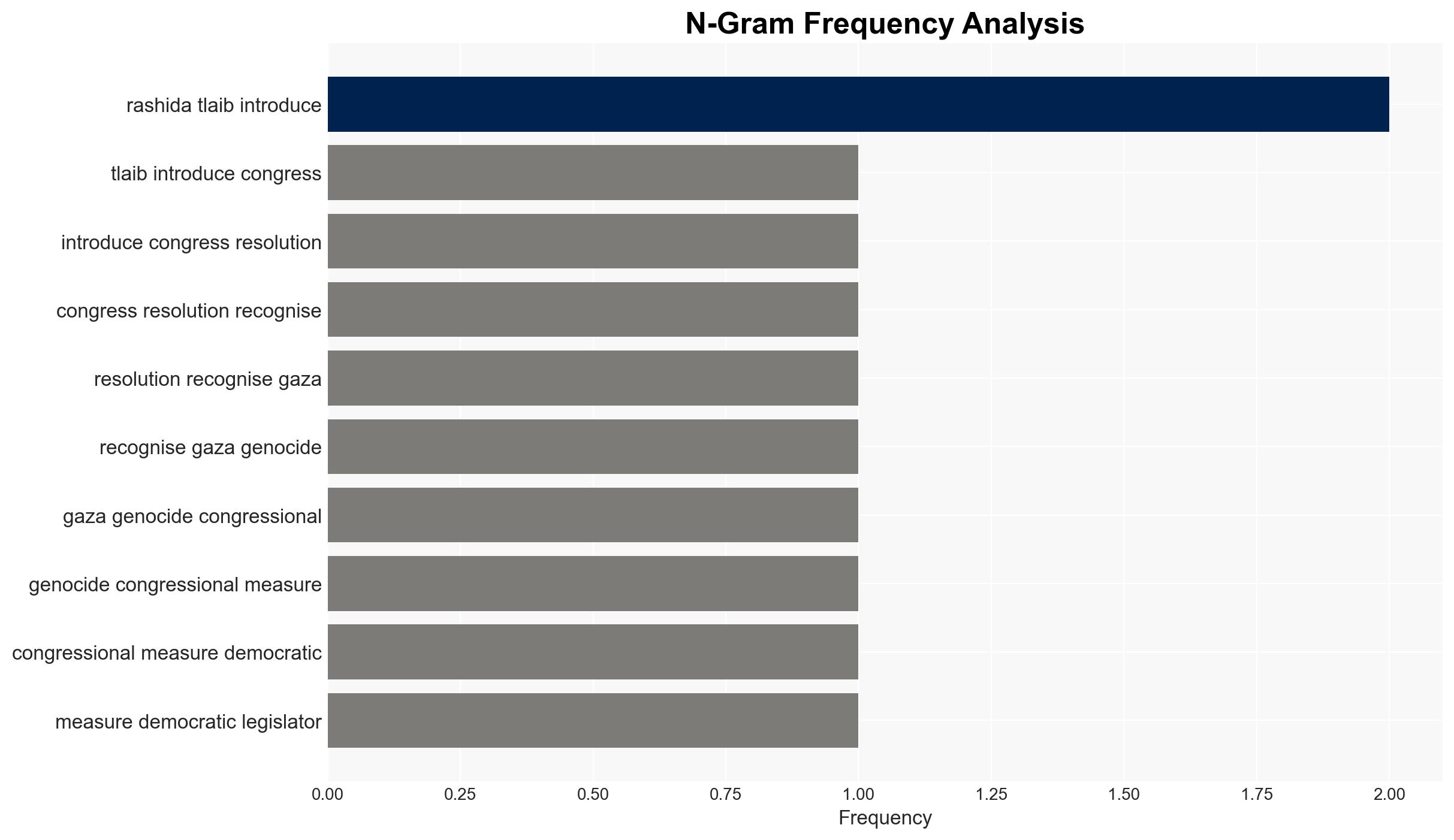Rashida Tlaib introduces US Congress resolution to recognise Gaza genocide – Al Jazeera English
Published on: 2025-11-14
AI-powered OSINT brief from verified open sources. Automated NLP signal extraction with human verification. See our Methodology and Why WorldWideWatchers.
Intelligence Report: Rashida Tlaib introduces US Congress resolution to recognise Gaza genocide – Al Jazeera English
1. BLUF (Bottom Line Up Front)
The introduction of a resolution by Rashida Tlaib to recognize the situation in Gaza as genocide reflects growing criticism of Israel’s actions in Gaza among certain US political factions. The resolution is unlikely to pass due to the Republican-controlled House but signals potential shifts in US foreign policy discourse. Confidence Level: Moderate.
2. Competing Hypotheses
Hypothesis 1: The resolution is primarily a symbolic gesture aimed at increasing pressure on Israel and influencing public opinion rather than achieving legislative success.
Hypothesis 2: The resolution signals a genuine shift in US policy towards Israel, with increasing support for Palestinian rights among progressive lawmakers potentially leading to tangible policy changes.
Assessment: Hypothesis 1 is more likely given the current political landscape, including the Republican control of the House and the historical bipartisan support for Israel. However, the growing support among progressive lawmakers for Palestinian rights cannot be ignored and may influence future policy debates.
3. Key Assumptions and Red Flags
Assumptions: The resolution’s introduction assumes continued bipartisan support for Israel will not shift significantly in the short term. It also assumes that public opinion can be swayed by symbolic legislative actions.
Red Flags: The potential for increased polarization within the US political landscape regarding foreign policy. The resolution may be used as a tool for political posturing rather than genuine policy change.
Deception Indicators: Statements from political figures that may exaggerate support or opposition to the resolution for political gain.
4. Implications and Strategic Risks
The resolution could exacerbate political divisions within the US, particularly between progressive and conservative factions. Internationally, it may strain US-Israel relations and affect diplomatic engagements in the Middle East. The resolution could also influence public opinion and media narratives, potentially leading to increased activism and advocacy for Palestinian rights.
5. Recommendations and Outlook
- Monitor the resolution’s progress and public reactions to gauge shifts in political and public sentiment.
- Engage in diplomatic dialogues with Israeli and Palestinian representatives to address concerns and foster understanding.
- Best Scenario: The resolution sparks constructive dialogue leading to peaceful resolutions and policy adjustments.
- Worst Scenario: The resolution leads to increased polarization and deteriorating US-Israel relations.
- Most-likely Scenario: The resolution fails to pass but contributes to ongoing debates and shifts in public discourse.
6. Key Individuals and Entities
Rashida Tlaib, Alexandria Ocasio-Cortez, Ro Khanna, Maxwell Alejandro Frost, Marjorie Taylor Greene, Bernie Sanders, Benjamin Netanyahu, Isaac Herzog.
7. Thematic Tags
Structured Analytic Techniques Applied
- Cognitive Bias Stress Test: Expose and correct potential biases in assessments through red-teaming and structured challenge.
- Bayesian Scenario Modeling: Use probabilistic forecasting for conflict trajectories or escalation likelihood.
- Network Influence Mapping: Map relationships between state and non-state actors for impact estimation.
Explore more:
National Security Threats Briefs ·
Daily Summary ·
Support us
·





